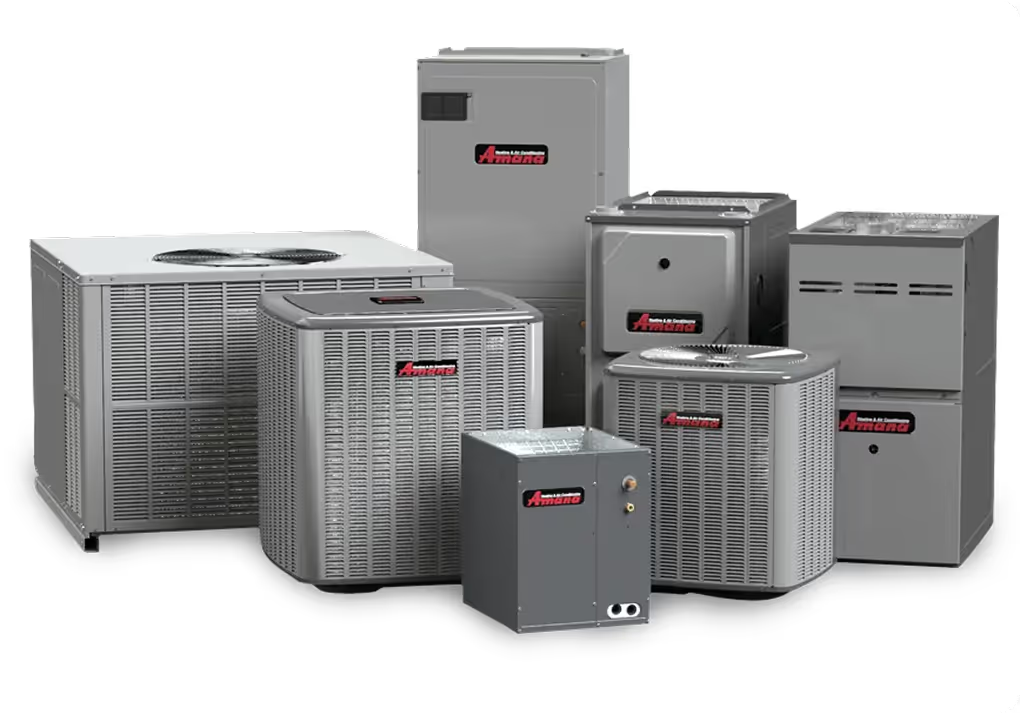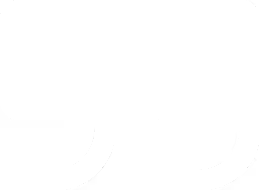Ensuring comfort in Dunn, NC, requires a reliable furnace. Our expert installation services focus on precision system design and sizing, considering factors like square footage, insulation, and local climate data to perfectly match a furnace to your home. We guide you through fuel type considerations, including natural gas, propane, and electric options, helping you choose the most cost-effective and suitable fuel for your Dunn residence. Adherence to crucial venting and building codes is paramount for safety, ensuring all exhaust gases are safely expelled. Our comprehensive installation process includes pre-assessment, old unit removal, new unit placement, ductwork, fuel line, electrical connections, and venting system installation, all followed by meticulous commissioning and testing to guarantee optimal performance and safety. We also provide details on manufacturer and labor warranties, and offer guidance on efficient operation and maintenance, including regular filter changes, thermostat management, and annual professional tune-ups, to maximize your new furnace's lifespan and efficiency in Dunn.
.jpeg)
Expert Furnace Installation Services in Dunn, NC
A reliable and efficient furnace is essential for comfort and well-being, especially during the colder months in Dunn, NC. When your existing system falters or reaches the end of its lifespan, a new furnace installation is a significant home improvement that promises improved efficiency, consistent heating, and enhanced indoor air quality. Understanding the comprehensive process of furnace installation ensures you make an informed decision and receive a heating system perfectly tailored to your home’s needs.
Precision System Design and Sizing for Dunn Homes
The foundation of an effective heating system lies in its precise design and sizing. Installing a furnace that is either too large or too small for your home in Dunn, NC, can lead to inefficiencies, discomfort, and premature system failure.
- Undersized Furnace: A furnace that is too small will struggle to adequately heat your home, running constantly and consuming excessive energy without achieving the desired temperature. This continuous strain shortens its operational life and results in higher utility bills.
- Oversized Furnace: Conversely, an oversized furnace will cycle on and off too frequently, a phenomenon known as "short-cycling." While it might heat quickly, it won't run long enough to effectively remove humidity from the air, leading to a damp, uncomfortable environment. Short-cycling also causes excessive wear and tear on components, increasing the likelihood of breakdowns.
Our approach involves a meticulous assessment of various factors specific to your Dunn residence, including:
- Square Footage: The total heated area of your home.
- Ceiling Heights: Taller ceilings require more heating capacity.
- Insulation Levels: Quality of wall and attic insulation significantly impacts heat loss.
- Window and Door Efficiency: Older or poorly sealed windows and doors can be major sources of heat loss.
- Local Climate Data: Taking into account the typical winter temperatures and conditions in Dunn, NC, to ensure the system can handle peak demand.
- Ductwork Integrity: Assessing the existing ductwork for leaks or inefficiencies that could compromise performance.
This detailed evaluation ensures that the new furnace is perfectly matched to your home's unique thermal load, guaranteeing optimal performance, energy efficiency, and lasting comfort.
Fuel Type Considerations for Your Dunn Residence
Choosing the right fuel type for your new furnace is a critical decision, influencing both operational costs and environmental impact. In Dunn, NC, several options are generally available, each with distinct advantages:
- Natural Gas Furnaces: Often the most popular choice where natural gas lines are accessible. Natural gas is typically more affordable than electricity or propane, offering consistent heat with lower operational costs. Its clean-burning nature also contributes to lower emissions. Availability of natural gas infrastructure in your specific Dunn neighborhood will be a primary factor.
- Propane Furnaces: An excellent alternative for homes outside the natural gas grid. Propane furnaces provide similar heating performance to natural gas systems. Propane is stored in a tank on your property, offering energy independence, though its price can fluctuate more than natural gas.
- Electric Furnaces: A viable option, especially in homes without access to gas lines or where electricity rates are favorable. Electric furnaces are generally less expensive to install and often have a longer lifespan due to fewer moving parts. However, they can be more expensive to operate than gas furnaces in areas with higher electricity costs. Modern electric heat pumps, while not strictly furnaces, can also provide heating and cooling, offering an efficient electric alternative.
Our experts can help you analyze the cost-effectiveness, availability, and long-term implications of each fuel type based on your home’s location in Dunn and your personal preferences.
Crucial Venting and Vent Code Adherence
Proper venting is paramount for the safe and efficient operation of any furnace. Furnaces produce exhaust gases, including carbon monoxide, which must be safely expelled from your home. Adherence to local building codes in Dunn, NC, is not just a regulatory requirement but a fundamental safety measure.
- Exhaust Gas Removal: The venting system channels combustion byproducts safely outside your home, preventing the buildup of dangerous gases indoors.
- Types of Venting: Depending on the furnace efficiency rating, different venting materials and configurations are used. High-efficiency furnaces often use PVC piping, while standard-efficiency units typically require metal flues.
- Code Compliance: Dunn, NC, building codes specify requirements for vent pipe diameter, routing, clearances from combustible materials, and termination points. Non-compliance can lead to serious safety hazards, including carbon monoxide poisoning, and can result in failed inspections.
- Professional Installation: Expert installers understand these complex codes and ensure that your furnace's venting system is installed correctly, securely, and in full compliance with all local regulations, safeguarding your household.
The Comprehensive Furnace Installation Process
A new furnace installation is a multi-step process executed with precision to ensure longevity and optimal performance:
- Pre-Installation Assessment: A final review of your home's specific requirements, ensuring the chosen furnace model and size are correct.
- Removal of Old Furnace: The existing furnace is carefully disconnected, dismantled, and removed from your property, with all hazardous materials disposed of responsibly.
- New Unit Placement: The new furnace is precisely positioned, ensuring proper clearances and alignment within your utility space.
- Ductwork Connection: The new furnace is securely connected to your existing ductwork. This often involves sealing any leaks in the duct system to maximize efficiency.
- Fuel Line and Electrical Connections: Qualified technicians safely connect the gas or propane supply line and all necessary electrical wiring, adhering to strict safety protocols and codes.
- Venting System Installation: The new venting system is meticulously installed or adapted from the existing one, ensuring a tight seal and correct slope for exhaust gas removal, in full compliance with Dunn building codes.
- Thermostat Installation/Upgrade: A new, often more advanced, thermostat is installed and configured to work seamlessly with your new furnace, providing precise temperature control and potential energy savings.
Commissioning and Thorough Testing
Once the physical installation is complete, the crucial stages of commissioning and testing begin. These steps are vital to verify that your new furnace operates as designed, safely and efficiently.
- Commissioning: This involves fine-tuning and calibrating the system. Technicians adjust airflow, burner settings, and fan speeds to optimize performance based on your home's unique characteristics. This ensures the furnace delivers the exact heat output required for maximum efficiency and comfort.
- System Testing: A series of rigorous tests are performed to confirm proper operation and safety:
- Start-Up and Shutdown Cycles: Verifying the furnace initiates and terminates heating cycles smoothly and reliably.
- Temperature Differential: Checking that the air temperature rise across the furnace is within the manufacturer's specifications.
- Carbon Monoxide Detection: Using specialized equipment to ensure no carbon monoxide leaks are present in the exhaust or living spaces.
- Gas Pressure Check: Confirming the gas pressure supplied to the furnace is correct for optimal combustion.
- Airflow Measurement: Ensuring adequate airflow through the ductwork for even heat distribution throughout your Dunn home.
- Safety Control Verification: Testing all safety mechanisms, such as limit switches and flame sensors, to ensure they function correctly.
These steps guarantee that your new furnace is not only installed but also performing at its peak from day one, providing reliable and safe heating.
Understanding Your Furnace Warranty Details
A new furnace represents a significant investment, and understanding its warranty provides peace of mind. Furnaces typically come with two types of warranties:
- Manufacturer’s Warranty: This covers the parts of the furnace, such as the heat exchanger, compressor, and other components, for a specified period (e.g., 5-10 years, sometimes longer for primary components). Registration of your new unit with the manufacturer is often required to activate the full warranty.
- Labor Warranty: This covers the labor involved in repairs should an issue arise, typically offered by the installing contractor for a shorter period (e.g., 1-2 years).
It’s important to review all warranty documentation provided with your new furnace. Professional installation is often a prerequisite for warranty validity. Any attempts at DIY repairs or uncertified service can void your manufacturer's warranty. Our team will provide clear details on both types of warranties applicable to your new system.
Guidance on Efficient Operation and Maintenance
To maximize the lifespan, efficiency, and performance of your new furnace in Dunn, NC, ongoing operation and maintenance are key:
- Regular Filter Changes: Replace or clean your furnace filter every 1-3 months, or more frequently if you have pets or allergies. A clean filter ensures optimal airflow and prevents dust buildup that can reduce efficiency and strain the system.
- Thermostat Management: Utilize a programmable or smart thermostat to set back temperatures when you're away or asleep. Even a small adjustment can lead to significant energy savings over time without sacrificing comfort.
- Annual Professional Tune-Ups: Schedule a professional furnace inspection and tune-up every fall before the heating season begins. A technician will clean components, check for wear and tear, lubricate moving parts, and verify all systems are working correctly. This proactive maintenance can prevent costly breakdowns, extend the furnace's life, and maintain peak energy efficiency.
- Keep Vents Clear: Ensure all supply and return air vents in your home are unobstructed by furniture, rugs, or drapes to allow for proper airflow and even heat distribution.
- Listen and Observe: Pay attention to any unusual noises, smells, or performance changes. Addressing minor issues promptly can prevent them from escalating into major problems.
By following these guidelines, residents in Dunn, NC, can enjoy consistent, efficient, and reliable heating from their new furnace for many years to come.

Featured Manufacturer
Amana is known for delivering high-quality heating and cooling solutions backed by industry-leading warranties. With a focus on energy efficiency, durability, and American craftsmanship, Amana products are designed to keep your home comfortable year-round.









.png)
.png)
.png)
.png)
.png)
.png)
.png)
.png)
.png)
